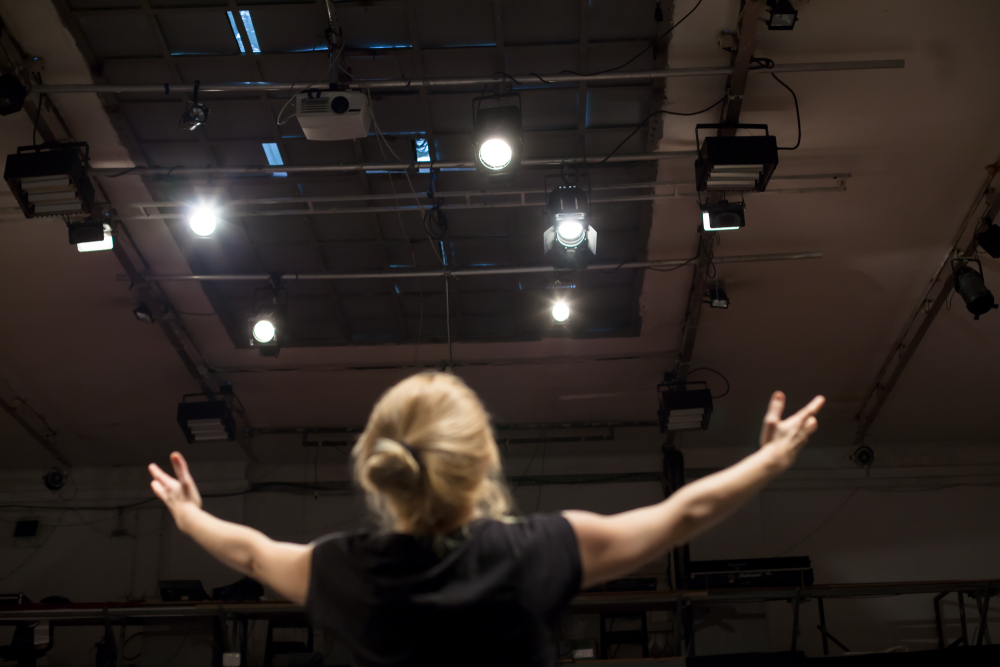Maiya MURPHY, Ph.D, Associate Professor | 6-min read
The field of Theatre and Performance Studies looks at performances on stages, screens, texts, and even in everyday life. On the one hand, it examines cultural practices that revolve around people making stories, images, and experiences about fictional worlds. On the other hand, it also considers, what if we look at daily life like a series of performances? How can understanding the roles we play in life and the scenes we set for everyday behaviour teach us about what matters to us as humans? To ask such questions, Theatre and Performance Studies specialists zoom in to the details of how specific kinds of performances work and zoom out to the larger social contexts where performances take place.
While performances on stage might require highly specialised technicians, artisans, writers, directors, and performers (imagine a strong and graceful trapeze artist), everyday performances might require people to simply repeat what they have learned since childhood (imagine a wave hello). To think about these two kinds of performances as both distinct and related, we can consider performances along a “broad spectrum” of behaviour. Studying about behaviour and its contexts, along with trying your hand at performance-making, are good ways to understand how performance works and what it does.

Learning about theatre and performance and exploring it in a hands-on fashion sharpens a wide range of skills and aptitudes suitable for many cultural industries. An education in theatre and performance serves as an excellent foundation for not only making theatre and performance but working in supportive, leadership, or administrative positions at arts organisations, educational institutions, governmental sectors, or non-governmental organisations that support cultural practices.
In National University of Singapore’s coursework Master of Arts programme, we like to look at a variety of behaviours across art and life that appear on stages, streets, pages, or the many screens that surround you. We have a special interest in behaviours that appear both in Asia and across the globe. Our wide-ranging specialities include performances that move between forms like literature, theatre and film, creative practices in performance-making, and digital practices in making, studying, and analysing performances. We prepare students for work within a fast-moving 21st century landscape.

Our programme, conducted in English, serves a broad range of students across Asia and the world. According to a 2022 NUS Theatre and Performance Studies programme survey with professors and lecturers in related fields across Asia including China, Hong Kong, South Korea, Malaysia, India, and the Philippines, 47% of undergrads in theatre and performance studies go overseas to pursue graduate studies. We welcome an international community where students have the opportunity to learn from and alongside fellow students with a variety of perspectives. This survey revealed that our programme is among the rare few Theatre and Performance Studies MA programmes in Asia. So far we are the only programme that students complete in one year by coursework only, meaning no thesis is required.
If you would like to learn more about what studying theatre and performance can offer you, take a look at the programme’s page.